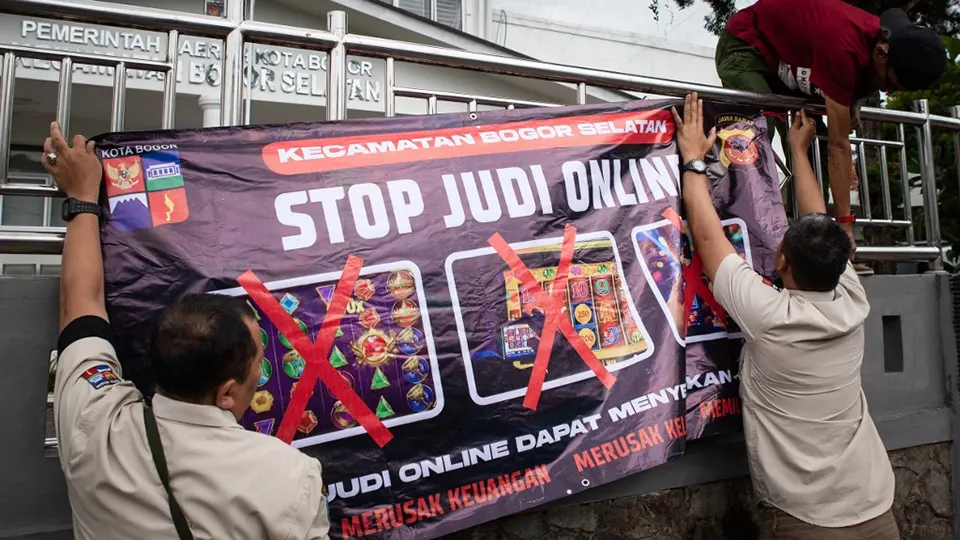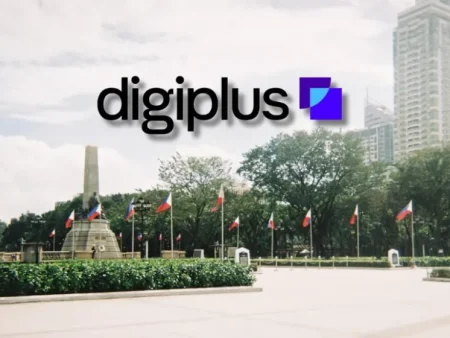In 2025, Indonesia escalated its commitment to tackling the rising tide of illegal online gambling. This Southeast Asian nation—known for its conservative stance on gambling—has introduced sweeping new regulations, aimed not only at suppressing unlawful activities but also at reshaping the digital landscape. What makes this crackdown particularly notable is the involvement of global tech players, with Meta (parent company of Facebook, Instagram, and WhatsApp) stepping into the fray. As this Indonesia online gambling crackdown intensifies, its ripple effects are being felt far beyond its borders—impacting users, tech companies, and regulators across the globe.
This comprehensive article combines insights from domestic policy shifts and international tech partnerships to offer a complete picture of how Indonesia’s anti-gambling crusade is becoming a global concern.
Background: Gambling and the Indonesian Legal Framework
Apacaff | Gambling has always been a contentious issue in Indonesia. As the world’s largest Muslim-majority country, it enforces strict moral and legal codes, especially in matters that could undermine societal harmony. Traditional gambling is banned under both civil and religious laws, and this restriction has extended into the digital realm as internet penetration has grown.
Before 2025, enforcement of online gambling regulations was patchy at best. Many illegal platforms operated with impunity, especially on encrypted messaging apps and social media channels. However, a surge in online gambling during the COVID-19 pandemic pushed this issue into the spotlight. The losses incurred by families and the rise in gambling-related crime prompted Indonesian authorities to act decisively.
The 2025 Crackdown: What Changed?
March 2025 marked a turning point in the fight against illegal gambling in Indonesia. The government rolled out a series of strict regulations under what is now referred to as the “Indonesia Online Gambling Crackdown.” Key components of the initiative include:
Stricter Penalties
Illegal gambling operators now face heavier sanctions, including multi-year imprisonment and substantial financial penalties. This applies to both platform owners and intermediaries who facilitate access to illegal gambling content.
Enhanced Surveillance
The government has significantly expanded its digital surveillance capabilities. Advanced AI and machine learning tools are being used to detect suspicious behavior and trace illegal transactions.
Public Awareness Campaigns
Simultaneously, nationwide campaigns have been launched to educate citizens about the dangers of online gambling. The messaging emphasizes the financial, social, and legal risks involved—especially for vulnerable populations like youth and low-income families.
Immediate Results
According to Indonesia’s Ministry of Communication and Information, the crackdown has already yielded results. Online gambling traffic has reportedly dropped by 40% since the implementation of the new laws—a signal that the campaign is having an impact, at least in the short term.
Meta’s Involvement: Big Tech Takes a Stand

The Indonesia online gambling crackdown took on an international dimension when Puan Maharani, Speaker of the House of Representatives, visited Meta’s headquarters in Menlo Park, California. During this high-profile visit, she urged Meta to deepen its collaboration with Indonesia to curb the spread of gambling content online.
Meta has a substantial presence in Indonesia, which ranks among the top four countries globally in Instagram user numbers. Platforms like Facebook and WhatsApp are also widely used—making them fertile ground for illicit gambling activities.
A Collaborative Push
Puan’s meeting with Meta executives, including Andy O’Connell (VP of Product Policy & Strategy) and Berni Moestafa (Head of Public Policy for Indonesia and Timor Leste), was aimed at forging a long-term partnership. According to Meta, Indonesia is already one of the top countries where the company has blocked the most online gambling content.
“Meta’s concrete steps to block thousands of gambling-related accounts and content pieces have helped protect Indonesians,” said Puan. “But we must go further.”
Tech Meets Policy
The delegation was shown Meta’s latest AI tools and content moderation technologies. These include automated detection systems that identify gambling-related keywords, suspicious financial links, and group activity patterns.
Puan emphasized that keeping Indonesia’s digital environment safe is a national priority, given the enormous influence of social media. “We need to promote responsible use of these platforms,” she said, adding that “collaboration with digital platforms is very important to ensure this kind of content has no room to grow in cyberspace.”
Expert Insights: Regulation vs. Reality
Not all responses to the crackdown have been enthusiastic. Critics argue that such heavy-handed approaches may drive gambling further underground, where regulation becomes even more difficult.
Academic Perspective
Prof. Siti Nurhaliza, a renowned legal analyst, warned that enforcement alone isn’t enough. “We must address the socio-economic conditions that drive people to gamble in the first place,” she noted. “A holistic approach is necessary—one that includes economic support, mental health services, and education alongside strict regulation.”
Psychological Factors
Research indicates that economic stress, boredom, and the illusion of quick wealth are common motivators for online gambling. Unless these root causes are addressed, demand will persist—regardless of how many websites are blocked.
A Broader Digital Strategy
Indonesia’s actions are part of a larger strategy to secure its digital ecosystem. This includes:
- Cybersecurity investments to detect and prevent fraud
- Stronger e-payment regulation to intercept gambling-related transactions
- Tech-sector partnerships to innovate safer online platforms
- Cross-border cooperation with ASEAN members and international watchdogs
The crackdown has also prompted neighboring countries to reassess their own digital gambling regulations, especially those with significant Muslim populations or shared user bases.
Global Implications: Why the World Should Pay Attention
The Indonesia online gambling crackdown offers a case study in balancing freedom, safety, and corporate responsibility in the digital age. The implications extend beyond national borders in several key ways:
Tech Accountability
Big Tech firms like Meta are now being asked to take a more proactive role in content moderation—not just in response to U.S. or EU laws, but at the request of sovereign nations with different values and priorities.
Regional Policy Shifts
Indonesia’s aggressive stance may inspire regulatory emulation across Asia and even Africa, especially in countries grappling with similar digital risks.
Economic Impact
Online gambling is a multi-billion-dollar global industry. Curtailing its operations in populous markets like Indonesia could reshape global business models, pushing platforms to invest in better compliance tools or abandon high-risk regions altogether.
Conclusion: A Pivotal Moment in Digital Governance
The 2025 Indonesia online gambling crackdown is more than a domestic policy move—it is a blueprint for international digital regulation. By combining strict national laws with global tech partnerships, Indonesia is pioneering a new model for tackling illegal online activity.
Meta’s involvement underscores how essential cross-sector collaboration is in the fight against digital vice. While challenges remain—particularly in avoiding the unintended consequences of underground activity—the groundwork has been laid for a safer, more accountable online environment.
As Indonesia continues to refine its approach, the global community watches closely. Whether for replication, caution, or inspiration, the world is learning from Indonesia’s bold gamble to eliminate illegal gambling from its digital landscape.












